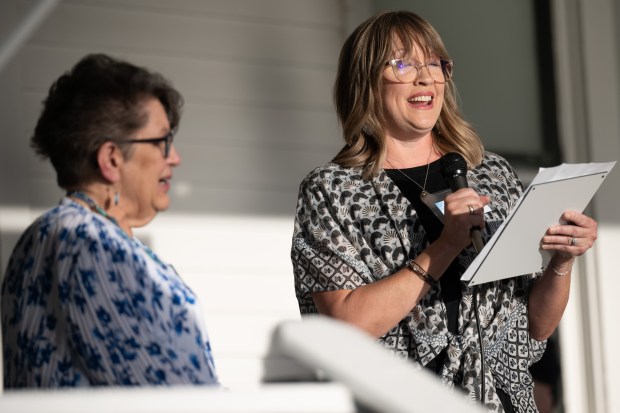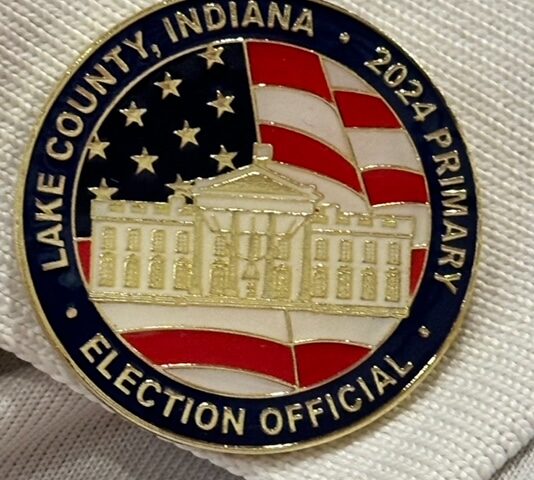More than 8 million Americans rely on insulin to survive, according to the American Diabetes Association, but with high prices and supply shortages hampering access, lawmakers and healthcare providers have turned their attention to the issue.
Last month, Indiana Attorney General Todd Rokita filed a lawsuit against drug manufacturers and third-party administrators for artificially inflating insulin prices, according to documents filed in Lake County Superior Court’s Civil Division.
The suit accused major drug manufacturers and pharmacy benefit managers such as Sanofi-Aventis, Novo Nordisk, CaremarkPCS Health, Express Scripts, CVS Health Corp., and Optum RX of conspiring to increase insulin medications by more than 1,000% in the last decade alone, even though the cost to manufacture the medicines has decreased in recent years. Indiana joins a host of other states and localities — including Arizona, California, Kentucky, Maryland, New York, and Ohio — claiming insulin makers and pharmacy benefit managers worked together to illegally drive up prices.
Indianapolis-based pharmaceutical corporation, Eli Lilly and Company, was not accused in Indiana’s lawsuit due to its cooperation with price reductions, the attorney general’s office said.
“Eli Lilly participated in the same conduct but has agreed to discuss resolution of concerns directly with the state and has cut its insulin prices and capped patient out-of-pocket costs at $35 per month,” Rokita said. “Therefore, they are not included at this time.”
In late March, Eli Lilly announced that two of its formulations of insulin — 10-milliliter vials of Humalog and insulin lispro injection — would be temporarily out of stock through the beginning of April, citing a “brief delay in manufacturing.”
Local healthcare networks like Methodist Hospitals Inc. and Franciscan Health said they regularly see the consequences of when insulin isn’t able to get into the hands of someone who needs it. The lawsuit’s documentation of diabetes as the leading cause of blindness, kidney failure, lower limb amputations and other major health problems is a reality they see in Northwest Indiana.
“We have experienced this,” said Sunitha Johns, ambulatory care clinical pharmacy specialist for Franciscan Health Physician Network. “Insulin is a common medication and unfortunately, we see affordability problems often …”
Johns said if blood sugar is elevated only a moderate amount, over time the effects add up, putting the patient at risk of serious disability from complications.
“Some common complications are cardiovascular disease such as heart attack or stroke, kidney disease, vision problems and neuropathy,” Johns said.
Registered Nurse Valerie Alger, Methodist Hospitals’ inpatient diabetic educator, said increased hospitalizations are another major symptom of insulin inaccessibility.
Even missing two doses of mealtime insulin, or rapid insulin, can increase someone’s chance of suffering from health issues due to uncontrolled blood sugars, she said.
“Public health is endangered and quality of life is vastly impacted by the increasing cost of life-saving medicines when people with diabetes cannot obtain necessary insulins. The cost of living in many areas of life has increased, housing, food, etc.,” Alger said. “Choosing whether to purchase life saving medicine should not be an unnecessary variable.”
According to Centers for Disease Control data from 2021, 10.8% of Lake County adults have been diagnosed with diabetes. In Porter County, the percentage was 9.2%, and in LaPorte County, it was recorded at 11.8% of the population.
Statewide, 10.8% of the population, or 640,435 Hoosiers, have been diagnosed with the disease. Diabetes is currently ranked as the seventh leading cause of death in Indiana.
Porter County Health Department Administrator Carrie Gschwind said while rising prices of insulin have many causes and factors, if collusion is involved, this litigation should “bring this to light.”
“…Additionally the American Diabetes Association advocates for affordable insulin prices at both governmental and industry levels,” Gschwind said. “At the Porter County Health Department, we have a care coordinator with experience in helping patients get medications through industry assistance programs and may be able to help those who are having difficulty obtaining their insulin due to cost.”
Diabetes medications that once cost patients $20 in the late 1990s have increased to $300 and $700, while the insulin in question costs manufacturers less than $2 to produce, the lawsuit alleged.
“Many diabetics in Indiana are forced to ration or under-dose their insulin, inject expired insulin, reuse needles, and starve themselves to control their blood sugars,” court documents said. “These behaviors are extremely dangerous and can lead to serious complications and death.”
In 2022, federal legislation was signed into law by President Joe Biden that caps insulin costs at $35 a month for Medicare recipients, but that leaves out a lot of diabetes patients. Biden and other health care advocates have been lobbying pharmaceutical companies to lower costs.
On March 1, Eli Lilly announced that they were cutting prices of their most commonly prescribed insulins by 70%. Beginning May 1, its non-branded insulin, Insulin Lispro Injection, will now cost $25 per vial, which the company said is lower than the price of what branded insulin vial Humelog would have cost in 1999.
Humelog, Eli Lilly’s most commonly prescribed insulin, decreased in cost by 70% as of April 1.
“As the complaint recognizes, Lilly has been proactively engaged in efforts to identify solutions within the U.S. healthcare system and expand access to affordable insulin,” said Antoinette Forbes, associate vice-president of public affairs for Eli Lilly. “In fact, Lilly was the first and still only company to cap what people pay at $35 per month for all of our insulins, whether someone is insured or not. Building on these longstanding and industry-leading efforts, we will continue to work with policymakers who share our commitment to insulin access and affordability.”
In the court documents, Rokita states that every year in Indiana, an estimated $5 billion is spent in medical costs associated with diabetes care, and that if those with diabetes had needed medications, more than $8.3 billion could be saved.
“This lawsuit is not just about money,” Rokita said. “The settlements and victories that we’ve won so far have a money component to them, but our overall goal is to change policy and to change behavior in the pharmacies who have profited off insulin for over 100 years.”
Anna Ortiz is a freelance reporter for the Post-Tribune.




